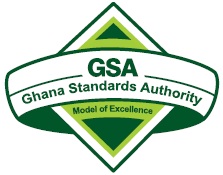Implement Code of Hygienic Practice for Street Foods

Even though street foods are a source of inexpensive, nutritious meals for various groups of the population there is a general perception that street-vended foods are unsafe mainly because of the environment under which they are prepared and consumed. Many a time, the environment exposes the food to numerous potential contaminants.
Food-borne diseases which are usually infectious or poisonous in nature are caused by bacteria, viruses, parasites or chemical substances that enter the body through contaminated food or water. The recent cholera outbreaks in different parts of the country, leading to deaths in some cases, show that street food vendors do not meet all food safety requirements.
According to the World Health Organisation, globally unsafe food accounts for the deaths of an estimated two million people annually, including children. Food containing harmful bacteria, viruses, parasites or chemical substances is responsible for more than 200 diseases, ranging from diarrhoea to cancers.
Changes in food production, distribution and consumption; changes to the environment; new and emerging disease-causing microorganisms all pose challenges to national food safety systems. Increases in travel and trade enhance the likelihood that contamination of food can spread nationally and internationally. Fortunately for this country, the Ghana Standards Authority has developed a Code of Hygienic Practice for Street-vended Foods.
The code provides guidance on three principal areas, namely, suitable locations under which food should be sold, the caliber of people who should sell food and the processes under which the foods are prepared.
The locations should be areas which are free from open gutters, refuse dump, smoke, dust or other contaminants. Also, roads to and areas serving the facility should have adequate drainage while provision is made to allow for cleaning. Again, living quarters, toilets and areas where animals are kept should be completely separated from food handling areas. In addition, adequate ventilation should be provided to prevent excessive buildup of heat, steam condensation and dust to remove contaminated air.
With regard to handling food people must be trained and made to under-go medical examination every six months. They should also wear suitable protective clothing including head cover and foot wear.
When it comes to processing the food, raw materials or ingredient stored on the premises should be maintained under conditions that will prevent spoilage and contamination. Again, water used for washing utensils, food and hand should be save and not be re-used.
Five ways that offer practical guidance to vendors and consumers when handling and preparing food are: First, keeping clean surroundings; second, separating raw and cooked food; third, cooking food thoroughly; fourth, keeping food at safe temperatures; and, finally, using safe water and raw materials.
All Metropolitan, Municipal and District Assemblies have a role to play to ensure that the Code of Hygienic Practice for Street-vended Foods is rigidly enforced in all parts of the country.
The enforcement of the code must be made a top priority on our national agenda. This is necessary to meet food safety requirements and rid the country of outbreak of any cholera and other diseases.
BY KOFI AMPONSAH-BEDIAKO, HEAD OF PUBLIC RELATIONS, GHANA STANDARDS AUTHORITY





